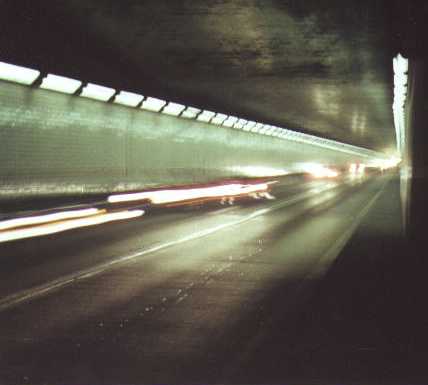
The Squirrel
Hill Tunnel was completed on June 5th, 1953 as an alternative to the
William Penn and Lincoln highways. This 18 million dollar project was,
at the time, the single most costly project by the State Highways
Department and since then it has become the principle route for
commuters from the eastern suburbs of Pittsburgh to enter the city.
This last
summer, a group of 11 college students and a CMU professor of
electrical engineering decided to take it upon themselves to solve a
long-time nuisance that the city has faced. Armed with laboratory
instruments, a couple of FM band antennas, and a couple hundred yards
of duct tape, the students worked in their spare time and on weekends
to devise a system that would provide FM radio coverage to the tens of
thousands of commuters to the city daily. The initial installation was
complete on October 21st, 2000. Please visit the updates
page for the latest news.
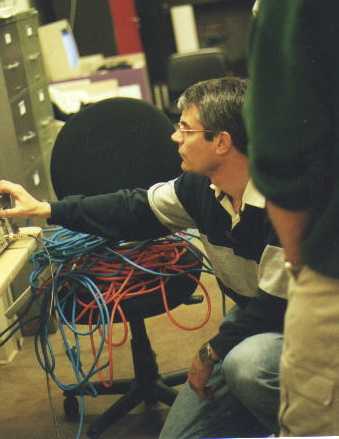
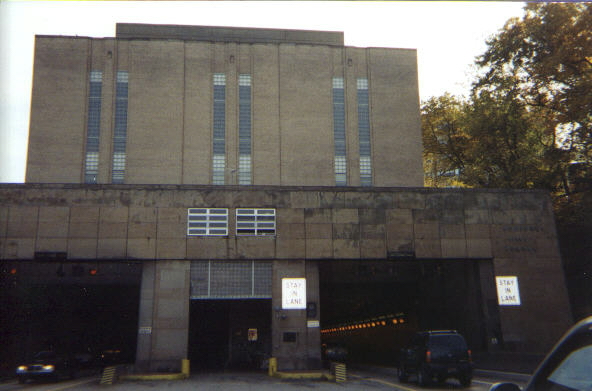
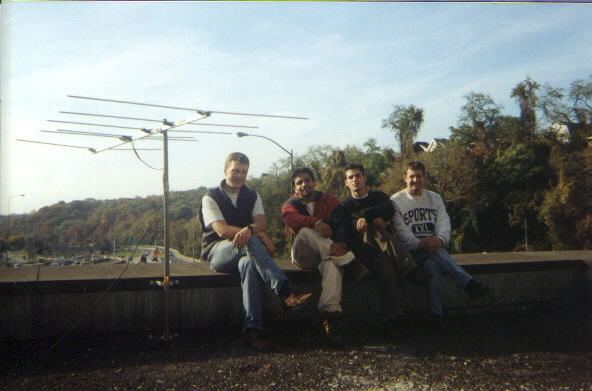
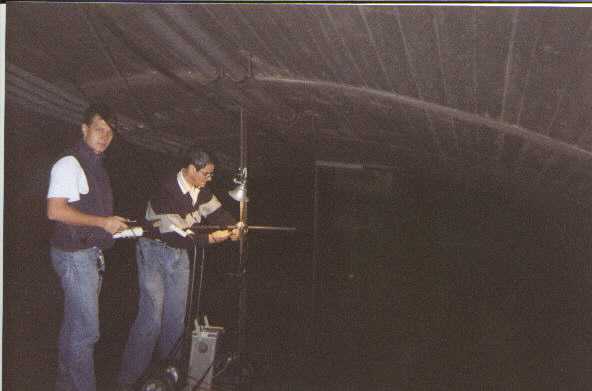
"The air ducts
above the tunnel were pretty scary -- it was like straight out of Ghost
Busters..."

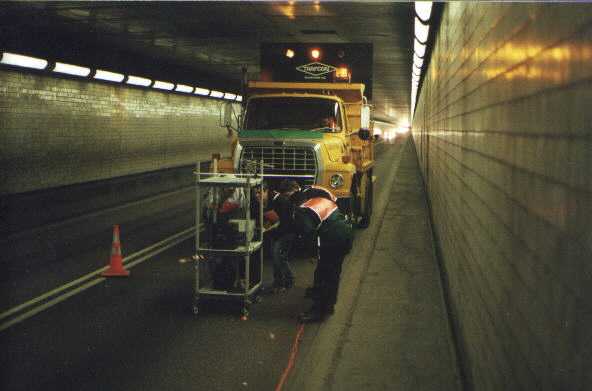
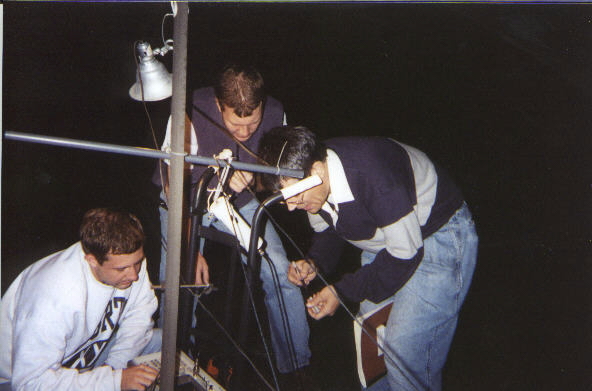
"Most of the
time we worked from 12-3 in the morning. The traffic was lightest
then..."
Basically,
we are a group of college students and a professor from CMU from a
diverse group of colleges who live and work in Pittsburgh and wanted to
do something good for the community. We approached PennDOT and asked
them for the opportunity to design radio for the tunnel this summer
because as commuters, we were tired of car radio cutting out during
rush hour. PennDOT was great and very supportive. We were given
permission, and we worked on it in our spare time. We finally got
something to work for minimal cost. PennDOT then bought the equipment
and we installed it for free.
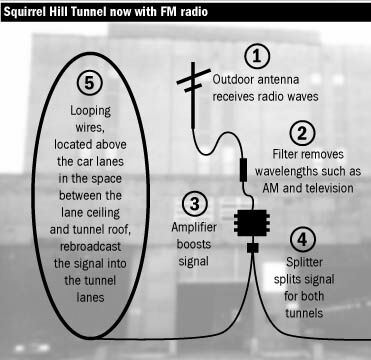
GRAPHIC:
Jonathan R. Nelson
The Squirrel
Hill system provides uniform FM coverage throughout the tunnel by
capturing radio signals from just outside the tunnel and re-amplifying
them through a wire which spans the entire length of the tunnel. The
entire system lies within the airducts above the tunnel and is
completely invisible to the commuter (except for the recieving antenna
on top of the offices on city side of the tunnel).